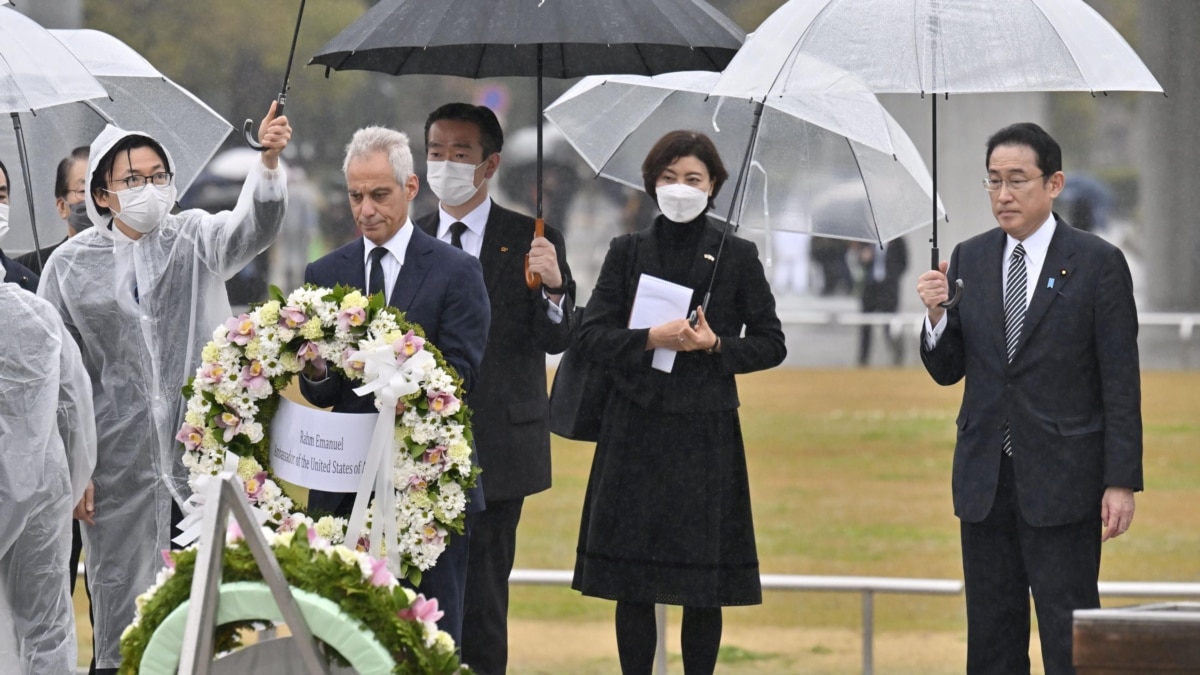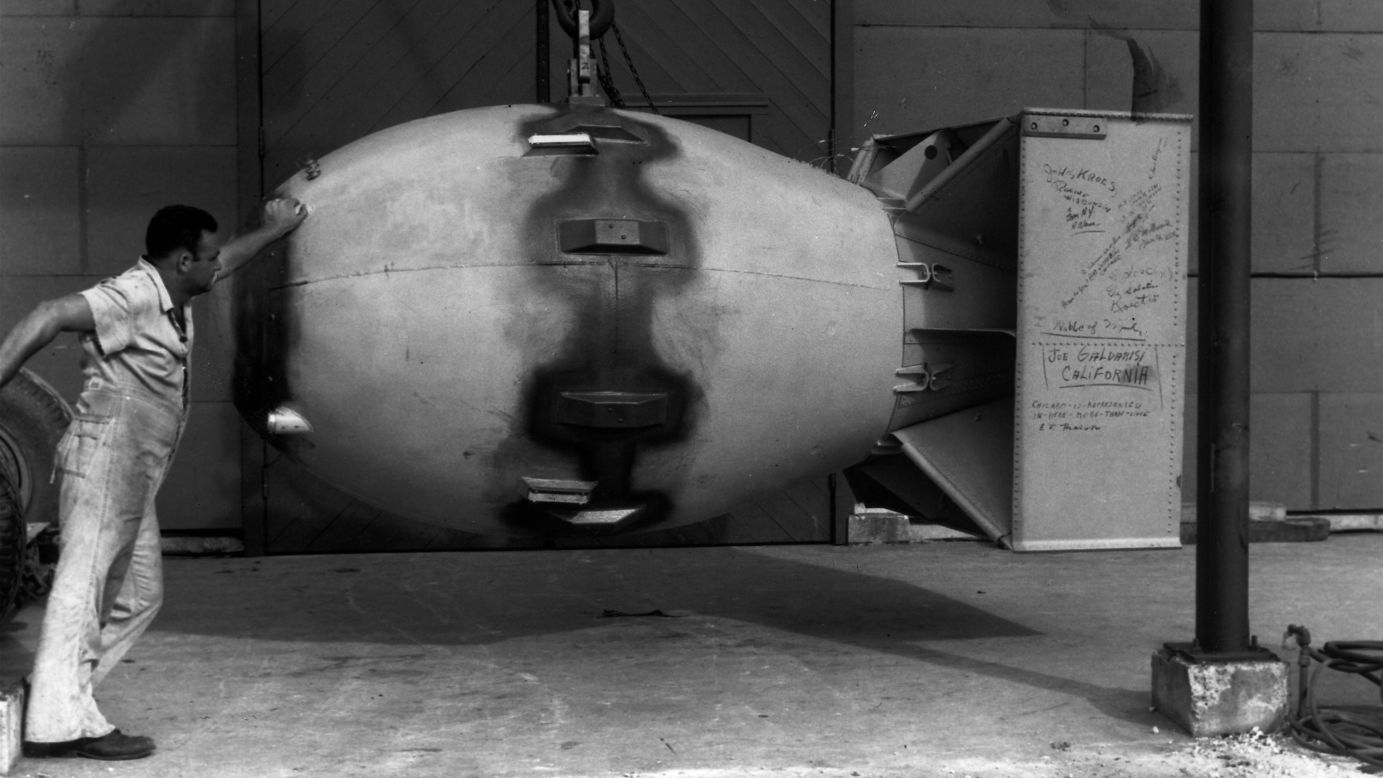Diplomatic Tensions and Protocol: Us Ambassador To Japan To Skip A Bomb Memorial Service In Nagasaki Because Israel Was Not Invited

The US ambassador’s decision to skip the Nagasaki bombing memorial service due to Israel’s non-invitation highlights the complex interplay of diplomacy, historical memory, and international relations. This event underscores the sensitivity surrounding such commemorations, especially when they involve historical tragedies with global implications.
Protocol and Invitations
Invitations to such memorial services are not merely symbolic gestures but reflect diplomatic protocols and the acknowledgment of shared historical experiences. The absence of a country from such an event can be interpreted as a diplomatic snub, raising questions about the nature of bilateral relations. The protocol surrounding invitations to these events often involves a complex assessment of historical ties, current political relations, and the potential impact of the country’s presence or absence.
Japan-Israel vs. Japan-United States Relations
The historical relationship between Japan and Israel is marked by a shared commitment to democracy and a strong economic partnership. However, the relationship has been somewhat overshadowed by the US-Japan alliance, which has been a cornerstone of regional security for decades. The US, as a key ally of both Israel and Japan, often plays a mediating role in their bilateral relations.
Reasons for Israel’s Non-Invitation, Us ambassador to japan to skip a bomb memorial service in nagasaki because israel was not invited
While the exact reasons for Israel’s non-invitation remain unclear, several factors could have played a role. These could include:
- Historical Considerations: Japan’s wartime alliance with Nazi Germany and its involvement in the Holocaust might have created sensitivities for Israel, potentially influencing the decision to exclude it.
- Current Political Climate: The ongoing Israeli-Palestinian conflict, particularly the recent escalation of violence, could have created a delicate situation for Japan, making it cautious about inviting Israel.
- Diplomatic Strategy: Japan might have chosen to focus on inviting countries with whom it has particularly strong ties or those who have played a significant role in promoting peace and reconciliation.
Consequences of the US Ambassador’s Absence
The US ambassador’s absence from the Nagasaki memorial service has generated significant controversy. This decision could be seen as:
- A Diplomatic Faux Pas: The US, as a key ally of both Japan and Israel, could be seen as failing to navigate a sensitive situation diplomatically.
- A Signal of Discontent: The absence could be interpreted as a sign of US displeasure with Israel’s policies or a lack of support for Japan’s efforts to promote peace and reconciliation.
- A Strain on US-Japan Relations: The controversy surrounding the ambassador’s absence could potentially strain the US-Japan alliance, which is vital for regional stability.
Public Perception and Reaction

The US ambassador’s absence from the Nagasaki bombing memorial service sparked widespread criticism and concern, both domestically in Japan and internationally. The decision was widely perceived as insensitive and disrespectful, further straining US-Japan relations.
Public Reactions and Statements
The ambassador’s absence triggered a wave of disapproval from Japanese citizens, politicians, and international figures. Many expressed disappointment and anger, highlighting the historical significance of the event and the importance of remembering the victims of the atomic bombings.
- Japanese citizens took to social media to express their outrage, with many calling the ambassador’s decision “unforgivable” and “an insult to the memory of the victims.”
- Japanese politicians, including members of the ruling Liberal Democratic Party (LDP), criticized the ambassador’s absence, emphasizing the importance of US-Japan cooperation and the need for the US to acknowledge the tragedy of the atomic bombings.
- International figures, including diplomats and human rights activists, also condemned the ambassador’s decision, calling it a “grave error in judgment” and a “missed opportunity” to promote peace and reconciliation.
Potential Impact on US-Japan Relations
The ambassador’s absence has the potential to significantly damage US-Japan relations. It has fueled existing anxieties about the US commitment to the alliance and raised concerns about the US’s understanding of Japan’s historical sensitivities. This could lead to a decline in trust and cooperation between the two countries, impacting future diplomatic efforts and security partnerships.
Implications for the US Ambassador’s Future Role in Japan
The ambassador’s decision has severely damaged his credibility and reputation in Japan. He may face difficulty in rebuilding trust with Japanese officials and citizens, potentially hindering his ability to effectively represent US interests in the country. The incident could also lead to calls for his resignation or a reassignment to a different diplomatic post.
Hypothetical Scenario for Minimizing Negative Impact
The US ambassador could have minimized the negative impact of the situation by acknowledging the importance of the Nagasaki bombing memorial service and explaining the reasons for his absence in a way that demonstrated respect for the victims and the sensitivities of the Japanese people. He could have, for example, sent a high-level representative to the ceremony and issued a statement expressing his deep regret for not being able to attend personally. This would have conveyed the US’s commitment to remembering the victims of the atomic bombings and to strengthening US-Japan relations.
Historical Context and Commemoration

The Nagasaki bombing, a tragic event that claimed the lives of thousands of innocent civilians, stands as a stark reminder of the devastating consequences of war. The historical significance of this event extends far beyond the immediate aftermath, shaping the course of international relations and leaving an indelible mark on the collective memory of humanity.
The Lasting Impact of the Nagasaki Bombing
The Nagasaki bombing, on August 9, 1945, was the second atomic bombing in history. It followed the Hiroshima bombing by three days, and effectively brought an end to World War II. The impact of the bombing was immediate and catastrophic, with an estimated 70,000 people killed instantly and tens of thousands more succumbing to radiation sickness in the following weeks and months. The city of Nagasaki was devastated, with widespread destruction and the long-term health effects of radiation poisoning impacting generations.
The bombing had a profound impact on Japan, both physically and psychologically. The nation was left reeling from the devastation and the loss of life, and the psychological scars of the bombing are still felt today. The event served as a powerful reminder of the horrors of war and the need for peace. It also highlighted the destructive power of nuclear weapons, leading to international efforts to prevent their proliferation.
Remembrance and Commemoration in Japan and Israel
Japan has a strong tradition of remembrance and commemoration, particularly when it comes to the events of World War II. The Nagasaki Peace Memorial Park, established in 1955, is a poignant testament to the city’s history and serves as a reminder of the importance of peace. The park features a museum, a memorial cenotaph, and a preserved section of the city that was destroyed by the bomb.
The annual Peace Memorial Ceremony, held on August 9th each year, is a solemn event that brings together survivors, dignitaries, and people from around the world to remember the victims and reaffirm their commitment to peace. The ceremony features speeches, prayers, and the ringing of a peace bell, symbolizing the call for peace and a world free from nuclear weapons.
Israel, too, has a strong tradition of remembrance and commemoration, particularly in relation to the Holocaust. The Yad Vashem World Holocaust Remembrance Center in Jerusalem is a dedicated memorial to the victims of the Holocaust and serves as a place for education and research. The annual Holocaust Remembrance Day, observed on the 27th of Nisan, is a day of mourning and reflection, with ceremonies held across the country to honor the victims and remember the lessons of the past.
While both Japan and Israel have strong traditions of remembrance and commemoration, there are also important differences in their approaches. Japan’s commemoration of the Nagasaki bombing is largely focused on peace and the prevention of future atrocities. Israel’s commemoration of the Holocaust, however, is more focused on remembering the victims and ensuring that the horrors of the past are never forgotten. These differences reflect the distinct historical experiences of both nations and their respective priorities in terms of remembrance and commemoration.
International Cooperation for Peace and Preventing Future Atrocities
The Nagasaki bombing serves as a stark reminder of the importance of international cooperation in promoting peace and preventing future atrocities. The event highlighted the devastating consequences of war and the need for global efforts to address conflict and prevent the proliferation of weapons of mass destruction.
The United Nations, established in 1945 in the wake of World War II, plays a crucial role in promoting international peace and security. The organization’s Charter, which Artikels its objectives and principles, emphasizes the importance of maintaining international peace and security, developing friendly relations among nations, and achieving international cooperation in solving international problems of an economic, social, cultural, or humanitarian character.
The Treaty on the Non-Proliferation of Nuclear Weapons (NPT), which entered into force in 1970, is another important international agreement that seeks to prevent the spread of nuclear weapons and promote nuclear disarmament. The treaty has been signed by 191 countries, and is considered to be one of the most successful arms control treaties in history.
Timeline of US-Japan and Israel-Japan Relations
- 1854: The Convention of Kanagawa is signed, opening Japan to trade with the United States.
- 1945: The United States drops atomic bombs on Hiroshima and Nagasaki, leading to Japan’s surrender in World War II.
- 1951: The Treaty of San Francisco is signed, formally ending the state of war between Japan and the Allied Powers.
- 1952: Japan and Israel establish diplomatic relations.
- 1960: The United States and Japan sign the Treaty of Mutual Cooperation and Security, which establishes a security alliance between the two countries.
- 1978: Israel and Japan sign a bilateral trade agreement.
- 1993: The United States and Japan sign the Framework for a New Partnership, which Artikels their commitment to cooperation in a wide range of areas.
- 2011: Japan is struck by a devastating earthquake and tsunami, and the United States provides significant assistance in the aftermath.
Perspectives on the Nagasaki Bombing
| Perspective | View on the Nagasaki Bombing |
|---|---|
| Japan | Views the bombing as a tragedy that resulted in the loss of countless innocent lives. Emphasizes the importance of peace and the prevention of future atrocities. |
| United States | Views the bombing as a necessary military action that brought an end to World War II. Acknowledges the tragic loss of life but argues that the bombing saved more lives in the long run by preventing a protracted war. |
| Israel | Views the bombing as a historical event that had a significant impact on the world. Emphasizes the importance of learning from the past and working towards a future free from war and violence. |
Us ambassador to japan to skip a bomb memorial service in nagasaki because israel was not invited – It’s totally messed up that the US ambassador to Japan skipped a bomb memorial service in Nagasaki because Israel wasn’t invited. Like, what’s up with that? It’s all about showing respect, you know? It’s kind of like the whole “if Noah Lyles had COVID why was he allowed to compete” if Noah Lyles had COVID why was he allowed to compete thing.
You gotta follow the rules, right? Anyway, it’s just a total bummer that the ambassador didn’t show up to honor the victims of the Nagasaki bombing. It’s just not cool, man.
So, like, the US ambassador to Japan totally skipped out on a bomb memorial service in Nagasaki because Israel wasn’t invited. Talk about a total buzzkill, right? Meanwhile, Kelsea Ballerini just announced her new album, *Patterns*, and it’s totally not what you’d expect – kelsea ballerini announces new album patterns it isnt what youd expect im team no rules.
I’m totally team “no rules” when it comes to music, but I’m not sure about this whole ambassador thing. Like, what’s the deal with that? It’s just messed up.